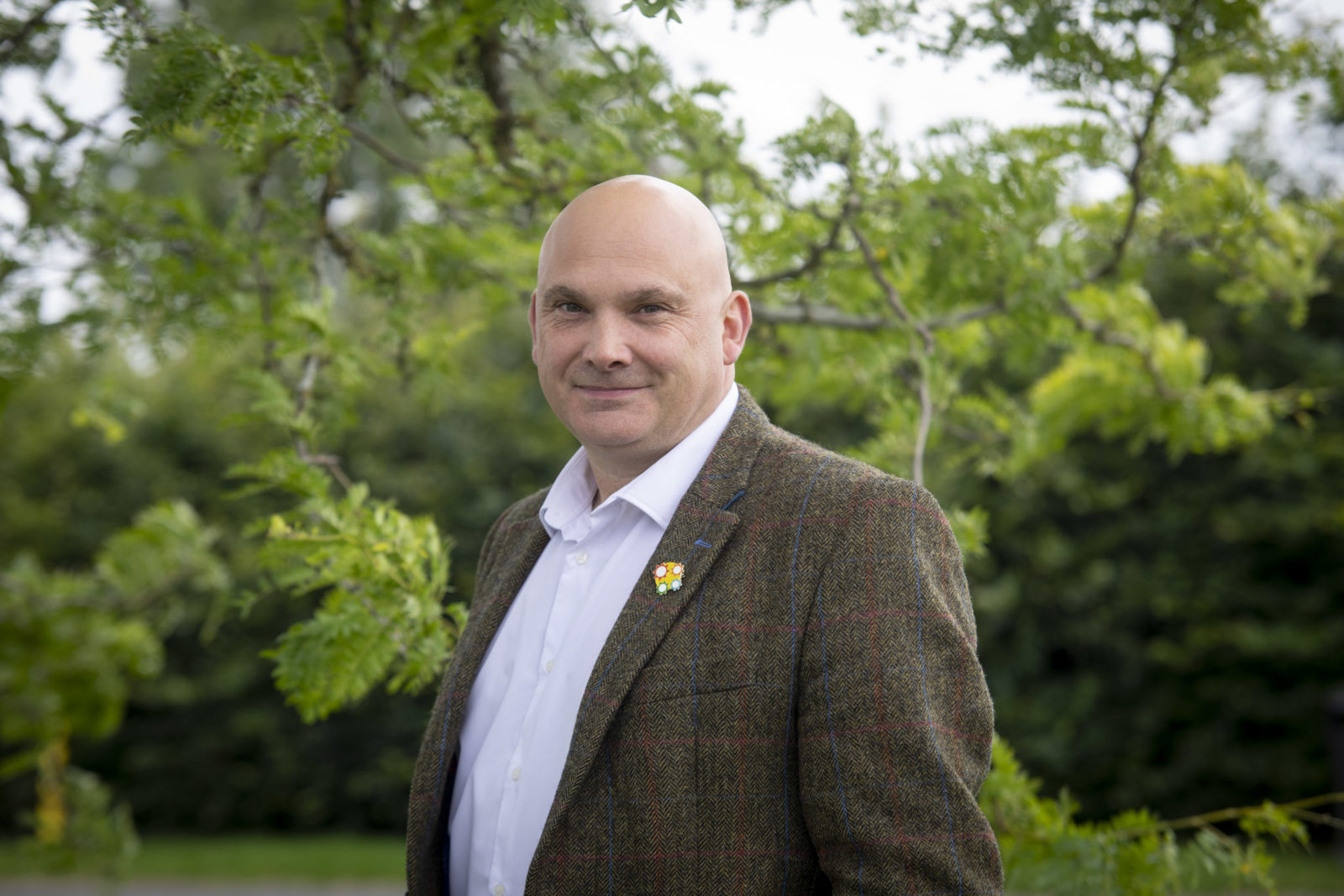A charity providing home care for vulnerable adults says it’s been forced to hand its contracts back to Wrexham County Borough Council or risk going bust.
According to Nick Evans, chief executive of Cymryd Rhan (Taking Part), the “unsustainable fees” paid by the council were so low that they faced an annual loss of more than £100,000 if they had carried on.
It would, he said, have meant Cymryd Rhan being faced with a choice of either effectively subsidising the council for the services they had commissioned or having to run services with insufficient numbers of staff to provide the support people needed.
The announcement comes on the back of a deepening crisis in social care which has seen the recent closures of four care homes in North Wales – Trewythen Hall in Gresford, Bay Court in Kinmel Bay, Gwastad Hall in Cefn y Bedd and Morfa Newydd in Greenfield – with the loss of more than 160 beds, piling even more pressure on the beleaguered social care system and the NHS.
Meanwhile, Ceredigion Council is taking over the Hafod y Waun care home in Aberystwyth after it was one of 10 sites put up for sale by the charity Methodist Homes (MHA) because of the “real challenges in ensuring the on-going sustainability” of the home.
Cymryd Rhan, which has its headquarters in Wrexham, has been providing nine main services across Wrexham, supporting 24 clients and generating annual revenue of more than £900,000.
Since October 2021 the charity has ‘topped up’ the salaries of its 27 care and support workers by dipping into its own reserves .
The charity said it would be both unlawful and untenable to continue with further annual deficits which would expose its Board of Trustees to substantial personal liabilities.
Managers had repeatedly requested a 13.1 per cent uplift on contracts this year from Wrexham Council, sharing their accounts in an ‘open book’ exercise to outline the financial challenges they faced.
Had the increase been granted, it would have provided the funding necessary to pay its care and support staff a three per cent pay increase to help them manage the cost-of-living crisis.
However, the council only offered a maximum of 10.10 per cent. This meant Cymryd Rhan needed to tap into its cash reserves to meet its contracts and ensure sufficient staff were in place to deliver them.
Mr Evans said: “We were unable to agree a contract uplift with Wrexham Council that would enable Cymryd Rhan to pay its care and support staff the cost of living increase they need.
“Recent experience has shown us that lower levels of increase in pay undermine our capability to retain and recruit the number and quality of care and support staff to deliver the amount and quality of support for people to have a good life.
“Up until now, Cymryd Rhan has used its own resources to top up salaries over and above the contract payments made by Wrexham Council, principally from reserves.
“However our assessment is that reserves will run out in two years if we continue to do this and Cymryd Rhan’s trading position would then become untenable and result in collapse.
“Under the rules of The Charity Commission, the trustees of the charity cannot to allow this situation to happen.”
The charity is now working closely with the council to ensure all affected Cymryd Rhan staff transfer to new commissioned services and provide continuity of care for the affected people to minimise any disruption.
Social care champions Care Forum Wales said it was “shocking but sadly not a surprise” that a charity care provider was being asked to dip into its own pockets to fund statutory services.
It warned Cymryd Rhan’s position was one being repeated across Wales and provided yet more evidence that local authority fees are failing to recognise the true cost of care.
Mr Evans added: “Since April, we have been running the contracts at a loss. We were in a similar position last year and likely to be again next year.
“As responsible trustees, we reached the conclusion we had no other choice but to hand back contracts.
“To continue to incur an annual loss of £102,000 and deliberately choose to shore up the funding of council contracts from our charity reserves would be negligent.
“It has been an absolute privilege being part of these people’s lives. To be in a position where we’re not able to continue is heart-breaking for us but Wrexham Council has placed us behind an emotional barrel – effectively asking a non-profit making charity to subsidise the services we provide on their behalf.
“As an organisation, we don’t invest money in wasteful activities. We don’t have fancy buildings and we don’t have a massive ‘back office’ function with management staff. Ninety-five per cent of our income goes back into the frontline.
“The refusal of the council to fund its statutory responsibilities is not only putting citizens at risk but adding to the problems of staff retention across the sector. If we cannot offer stability, we won’t keep people in the sector.
“There is a need for trustees to protect the charity’s other services and, as hard and heart-wrenching as the decision is, we have been forced to cancel contracts that are putting the organisation at financial risk.”
Mr Evans, who previously won a Wales Care Award in Excellence in Leadership and Management, said by valuing its staff and paying a good salary, with additional wellbeing benefits, the charity had boosted staff retention rates by almost 75 per cent over the past 12 months. The focus on retention had also enabled it to provide better quality, person-centred care.
“We implemented the Real Living Wage increase in October 2021 even before it was made a commitment by the Welsh Government, and we topped up the shortfall with reserves,” he explained.
“But when we started negotiations in March, we realised the council was initially only offering an eight per cent uplift.
“We agreed to conduct an open book exercise to demonstrate that operating at their proposed rate would result in a substantial shortfall, but they were not prepared to meet our legitimate costs in full. They’ve since had six months of quality delivery while they’ve dragged their feet.”
Mary Wimbury, the chief executive of Care Forum Wales, said: “It defies logic that a local authority expects a charity, or indeed any care provider, to operate at a loss.
“There are severe legal and financial implications for any trustees who accepted such operating conditions and we completely understand why Cymryd Rhan felt they had no choice but to bow out of their contracts. It is completely unsustainable to have to subsidise social care services commissioned by a council.
“Regrettably, Cymryd Rhan’s situation is not an isolated case. We have long warned of an unjust postcode lottery of fees with local authorities and health boards, with an ever widening North-South divide which has seen local authorities in North Wales paying irresponsibly low fees.
“In the meantime, care homes, nursing homes and care providers across Wales are closing or withdrawing from contracts because they simply cannot afford to continue at the current levels of funding.
“Another illustration of the depth of the social care crisis is that Ceredigion Council has been forced to spend an extra £1m in taking over the running of the Hafod y Waun care home in Aberystwyth because it has the statutory responsibility to ensure these vital services exist in the county. Whether it’s a charity or in the private sector, the costs are the same the issues are the same and it’s unlawful to operate at a loss.”
Mr Evans added: “Our relationship with other councils around Wales, particularly in the west and towards the south, is quite different from what we have experienced in North Wales.
“If local authorities are going down this road where they’re going for cheaper alternatives coming from across the border making all sorts of promises of delivering more for less, it’s a very short-term plan which will eventually ‘pop’.”









Leave a Reply
View Comments